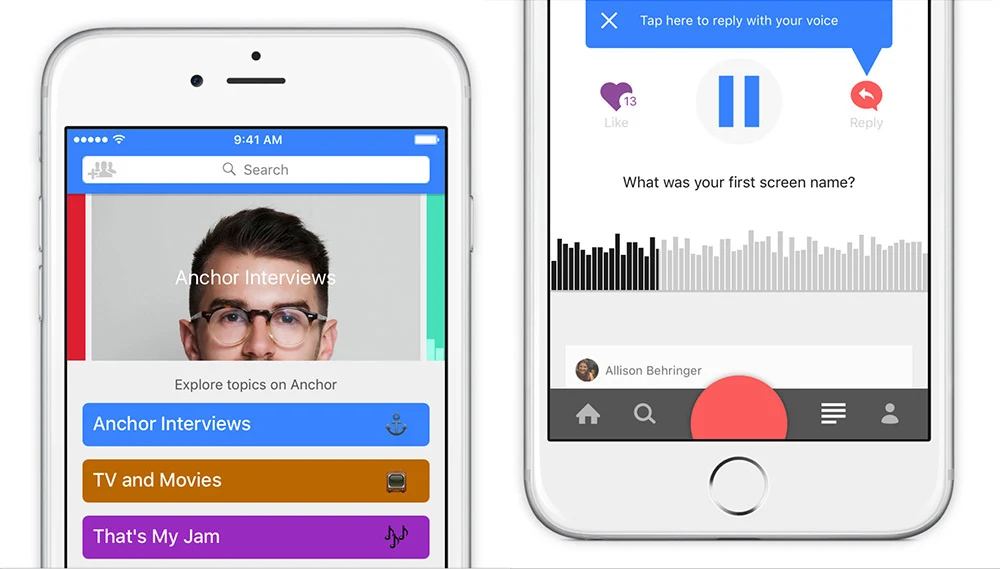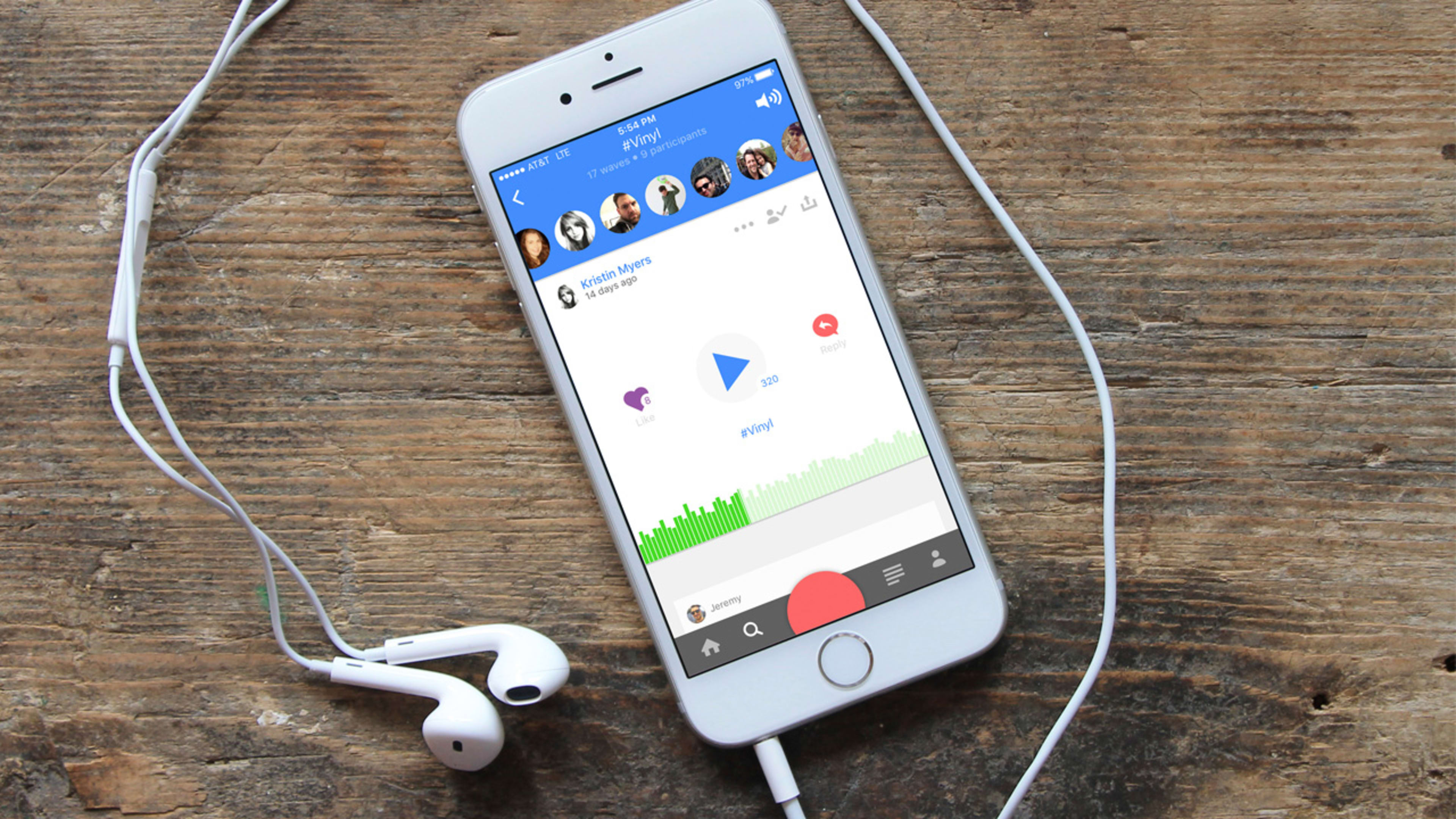For a media format that’s allegedly undergoing a renaissance, spoken audio is pretty stale. Unlike the hypertext of the web, every second of content in a podcast or other piece of online audio is locked firmly inside the waveforms and timestamps of a medium that hasn’t changed all that much since NPR first started posting its shows on what we once called “the Net.”
Not only is audio hard to break apart and share, but it’s also rather difficult to publish in the first place. Why can’t we podcast as easily as we blog?
Anchor is a new iOS app that aims to free audio from its old-school confines, allowing anyone to record and publish snippets of sound to create a sort of collaborative podcast. The end result, the Anchor team hopes, is what the startup’s press release so ambitiously calls “the world’s first true public radio.” A lofty-sounding goal, sure, but it might actually be realistic.
“There are currently so many hurdles preventing the average consumer from recording and sharing their voice: expensive hardware, confusing software, cumbersome distribution,” says Anchor cofounder and CEO Michael Mignano. But nowadays, he points out, “most of us are carrying around Internet-connected microphones in our pockets.”
So why should we leave audio broadcasting to the pros or even the well-equipped amateurs? Anchor’s answer: We shouldn’t.

Here’s how it works: Using Anchor’s mobile app (iOS-only for now), users can find episodes that interest them–say, a discussion on the merits of streaming music vs. vinyl records–listen to what others have to say and then record and post their own response. To ensure clear audio, the app encourages people to put the phone up to their ears and talk as though they’re on the phone (remember that?). Once finished, they can post their audio right into the episode, where others can hear it and decide whether or not to chime in themselves. These episodes become sharable, embeddable conversations. The best clips, Mignano tells me, will be compiled into a sort of “best of” digest and distributed in the official Anchor podcast.
At launch, the Anchor team will be the ones curating and publishing that podcast. But over time, Mignano says, they want to open up this functionality to users as well.
But what about quality? Doesn’t this participatory, wide-open model invite crappy audio and crappier discourse–the auditory equivalent of half-baked blog posts and racist news story commenters? The quality, Miganano assures us, will be kept in check as the service (hopefully) scales.
“We try to steer people into talking about specific topics through the Discover section of the app,” he says. “We provide a level of curation by promoting the best recordings to users who aren’t yet following any other users. Over time, a user’s stream will be more algorithmic in how it’s populated.”
Hopefully those measures can build some lasting quality control into the process. Anyone who’s ever listened to a call-in radio show knows how easily the level of discourse can start barreling downhill.
At first glance, it’s a cool idea in a well-designed package. But can this little app really democratize a medium? Anchor has a few factors working its favor: The $1.6 million in funding it just landed from investors like SV Angel, Eniac Ventures, Betaworks, and others certainly doesn’t hurt. And you might say: Money is great and all, but plenty of investors have poured tons of money into apps that have crashed and burned. For evidence that this idea might actually be worthwhile, look no further than Anchor’s launch partner: WNYC’s Radiolab. The hugely popular public radio show and podcast will use the startup’s platform to help turn listeners into participants. If anybody’s qualified to make a bet on radio’s future, it’s them.
Recognize your brand’s excellence by applying to this year’s Brands That Matter Awards before the early-rate deadline, May 3.




